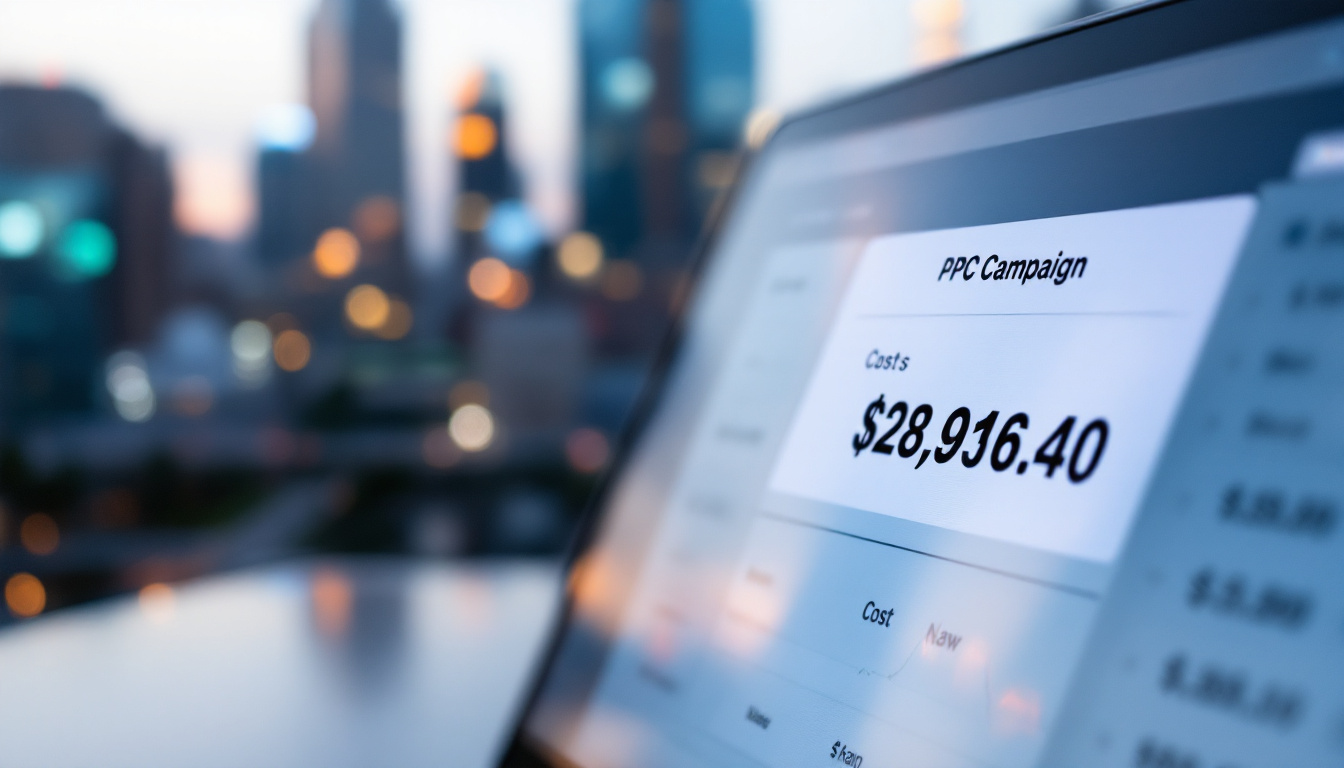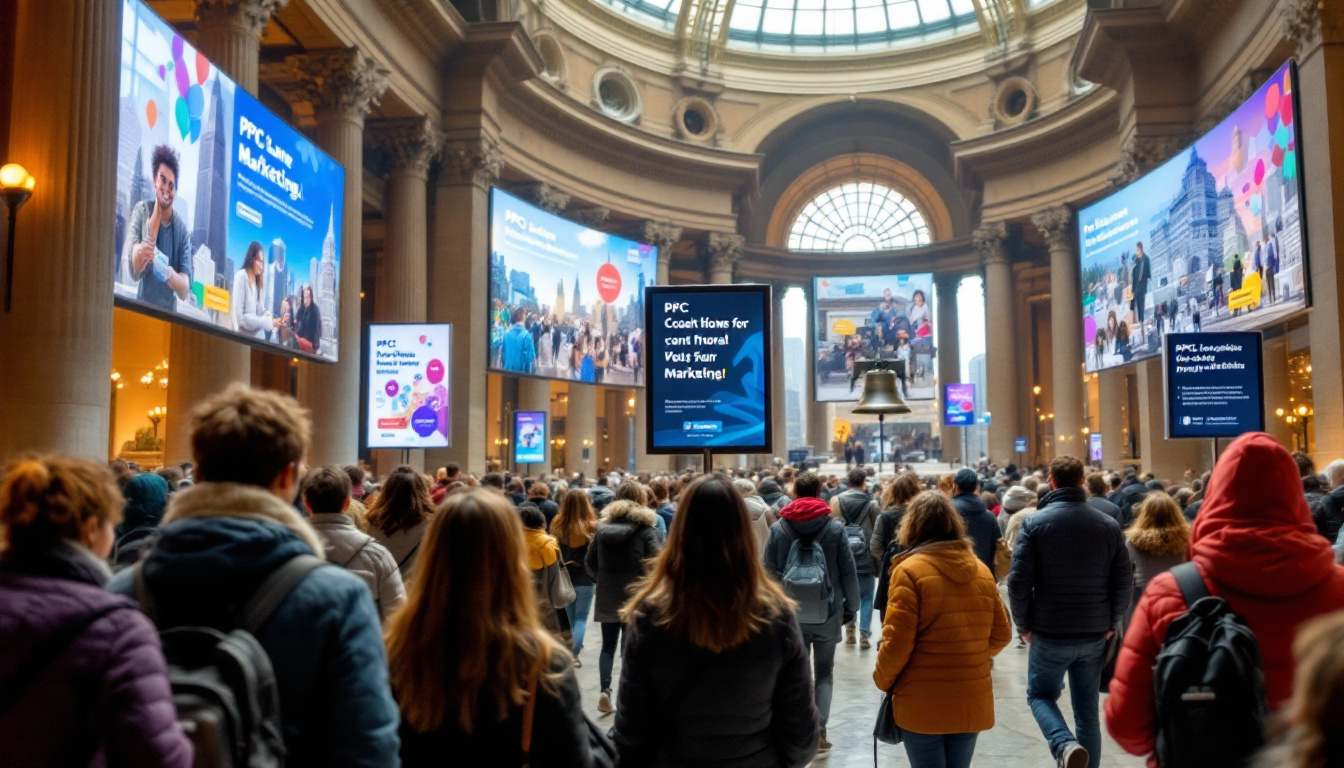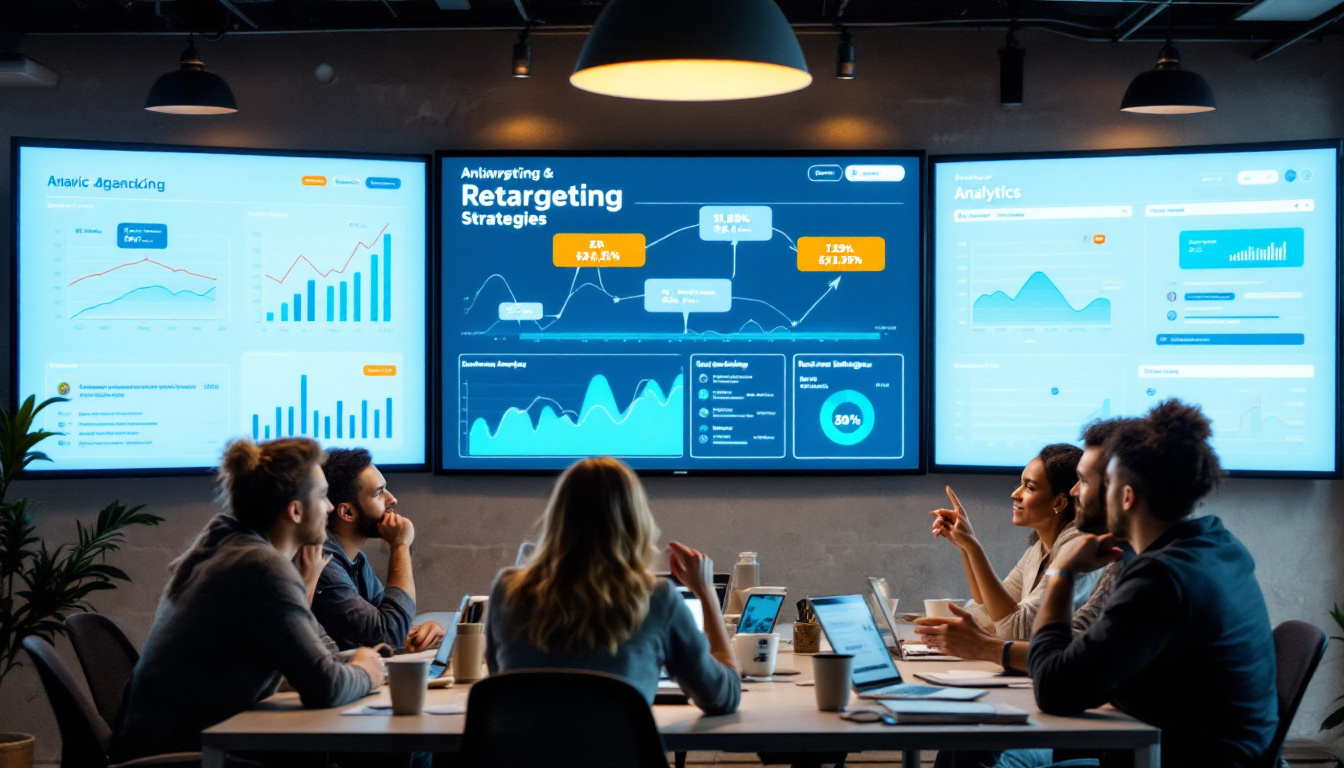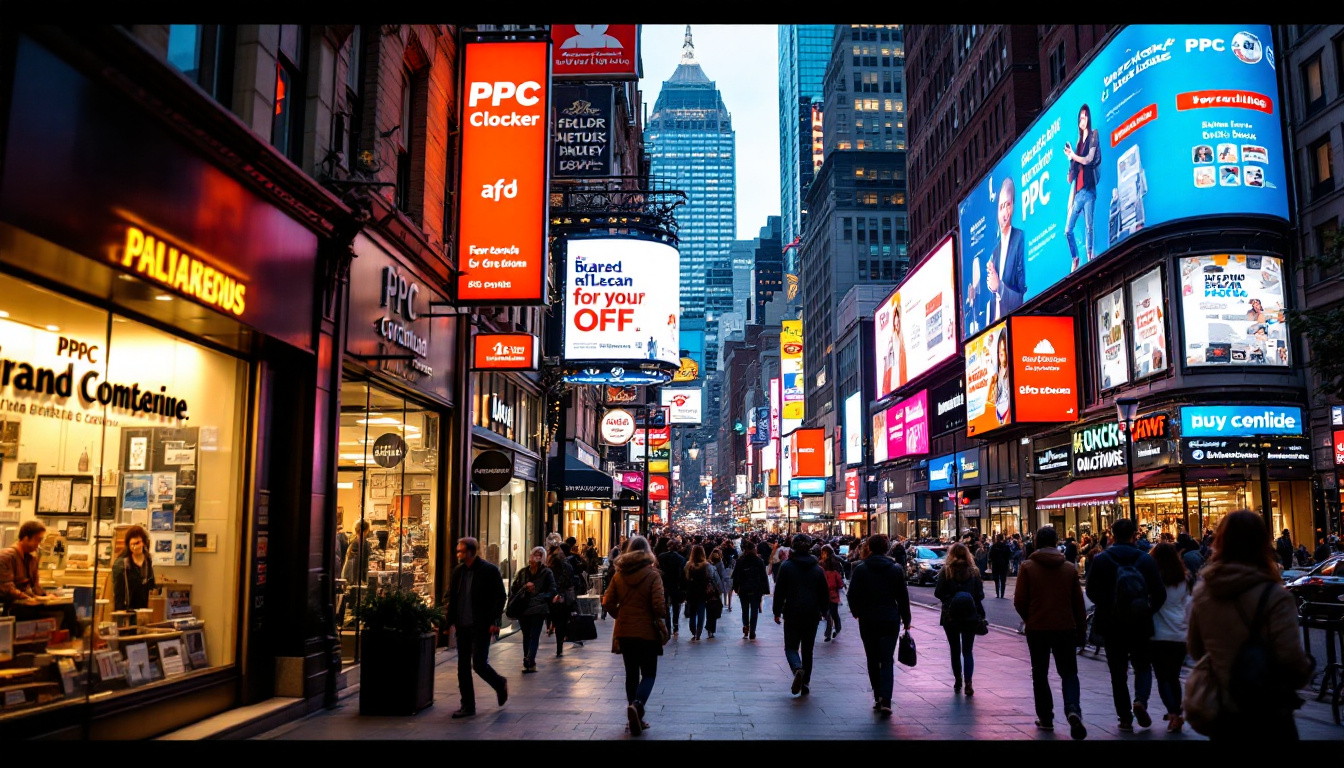Top PPC FAQs Answered for Philadelphia, PA Businesses

Pay-Per-Click (PPC) advertising has become a crucial part of the digital marketing ecosystem, especially for local businesses in vibrant cities like Philadelphia, PA. With a variety of options and strategies, it’s essential for business owners to understand the fundamentals of PPC. In this article, we will address some of the most frequently asked questions about PPC to provide clarity and help Philadelphia businesses harness the full potential of this advertising model.
What is PPC and how does it work?
PPC stands for Pay-Per-Click, a model of internet marketing in which advertisers pay a fee each time one of their ads is clicked. Essentially, it is a way to buy visits to your site, rather than attempting to “earn” those visits organically. In simpler terms, if you want to drive traffic to your site, you can create an ad and pay for it to be displayed on search engines or social media platforms.
PPC operates on a bidding system, where you can choose specific keywords related to your business. When someone types a search term that includes your chosen keywords, your ad may appear at the top or bottom of the search results. The placement and visibility of your ad depend on various factors, including your bid amount, quality score, and the competitiveness of the keyword. This means that not only do you need to select the right keywords, but you also have to ensure that your ad is relevant and engaging enough to entice users to click on it.
The Components of PPC
A successful PPC campaign is made up of several vital components:
- **Keyword Research:** Identifying the right keywords that your target audience is searching for.
- **Ad Creation:** Writing compelling ad copy that attracts clicks.
- **Landing Page Optimization:** Ensuring the page users land on after clicking the ad is relevant and optimized for conversions.
- **Tracking & Analytics:** Monitoring the performance of your campaigns and making adjustments based on data.
Each of these components plays a crucial role in the effectiveness of your PPC strategy. For instance, keyword research not only involves finding popular search terms but also understanding user intent behind those searches. This can lead to more targeted ads that resonate with potential customers. Similarly, landing page optimization is essential; if the page does not deliver what the ad promises, users are likely to bounce, resulting in wasted ad spend.
Different Types of PPC Campaigns
Several types of PPC campaigns exist, each offering unique advantages. The most common types include:
- **Search Ads:** Text ads that appear on search engine results pages.
- **Display Ads:** Visual ads that appear on websites within the Google Display Network.
- **Social Media Ads:** Paid promotions on platforms like Facebook, Instagram, and Twitter.
- **Remarketing Ads:** Ads shown to users who have previously visited your site.
Each type of PPC campaign can be tailored to meet specific marketing goals. For example, search ads are particularly effective for capturing demand when users are actively searching for products or services, while display ads can be used to build brand awareness by reaching users as they browse other websites. Social media ads allow for highly targeted campaigns based on user demographics and interests, making them ideal for engaging specific audience segments. Remarketing ads, on the other hand, serve as a gentle nudge to users who have already shown interest in your offerings, reminding them to return and complete their purchase.
Why is PPC important for local businesses?
PPC is particularly beneficial for local businesses as it allows them to reach their target audience effectively. In a bustling city like Philadelphia, competition is fierce, and having visibility is crucial for success. Here are several reasons why PPC should be a part of every local business's marketing strategy:

- **Immediate Results:** Unlike SEO, which can take time to develop, PPC can drive traffic to your website within hours of launching your campaign.
- **Targeted Advertising:** PPC allows local businesses to target specific demographics, interests, and geographical areas, ensuring that your ads reach potential customers right in your neighborhood.
- **Cost Control:** You set your budget, and you only pay when someone clicks on your ad, making it a cost-effective way to market your business.
By leveraging PPC, Philadelphia businesses can capture local market share while maximizing their advertising spending.
Geographic Targeting
Local businesses can enhance their PPC efforts by utilizing geographic targeting. This means you can focus your ads specifically on Philadelphia or even narrower areas, such as specific neighborhoods. By appearing in local search results, businesses can increase their chances of attracting nearby customers who are ready to make a purchase.
Moreover, geographic targeting can be combined with other strategies, such as dayparting, which allows businesses to display ads at specific times when their target audience is most active. For instance, a local coffee shop might choose to run ads in the early morning hours when commuters are looking for a caffeine fix. This level of precision not only maximizes the effectiveness of the ad spend but also ensures that the right message reaches the right audience at the right time. Additionally, utilizing local keywords in your PPC campaigns can further enhance visibility, as potential customers are often searching for services and products that are conveniently located near them.
Another significant advantage of PPC for local businesses is the ability to track and analyze performance in real-time. With tools like Google Ads, business owners can monitor which ads are performing well and which are not, allowing for quick adjustments to optimize campaigns. This data-driven approach enables businesses to refine their strategies continually, ensuring they are not only reaching their audience but also engaging them effectively. By analyzing metrics such as click-through rates and conversion rates, local businesses can gain valuable insights into customer behavior and preferences, which can inform future marketing efforts beyond just PPC.
How to select the best PPC platform?
Choosing the right PPC platform is essential for maximizing your advertising effectiveness. The decision often depends on your business goals and where your target audience spends their time. Here are some popular platforms to consider:
- **Google Ads:** As the largest search engine, advertising on Google allows you to reach people actively searching for products or services like yours.
- **Facebook Ads:** With a vast user base, Facebook allows for demographic targeting based on interests, age, and location.
- **Bing Ads:** While not as popular as Google, Bing Ads can be a cost-effective alternative with less competition.
- **LinkedIn Ads:** Ideal for B2B businesses, LinkedIn offers unique targeting options for professional services.
Consider your audience’s behavior and choose a platform that aligns best with your business objectives.
Evaluating Platform Features
Different platforms come with various tools and features that can enhance your PPC campaigns. Look for platforms that offer:
- **Ad Customization:** The ability to tailor your ads for different segments of your audience.
- **Analytics Tools:** Robust reporting features that allow you to measure performance effectively.
- **Integration Capabilities:** Ease of integration with other marketing tools and platforms.
What are the costs associated with PPC?
The costs involved in PPC can vary significantly based on various factors, such as industry competitiveness, keyword selection, and campaign goals. Here’s a breakdown of potential costs:

- **Cost-Per-Click (CPC):** This is the amount you pay each time someone clicks on your ad. CPC can range from a few cents to over $50, depending on factors such as competition and keyword popularity.
- **Daily Budget:** You can set a budget for your campaigns. This is the maximum amount you are willing to spend daily.
- **Total Campaign Costs:** Consider the overall budget for your PPC campaign; this includes creating ads, running them, and ongoing management.
Effective budgeting ensures you can sustain your campaigns long enough to evaluate performance and see results.
Hidden Costs to Consider
Aside from direct costs associated with clicks, local businesses must also consider potential hidden costs such as:
- **Time Investment:** Managing PPC campaigns requires time for keyword research, ad creation, and performance monitoring.
- **Agency Fees:** If you choose to hire a marketing agency to manage your PPC campaigns, factor in their service fees.
How to measure the success of your PPC campaigns?
Measuring the success of your PPC campaigns is crucial to understanding the return on investment (ROI) and making informed adjustments. There are several key performance indicators (KPIs) to monitor:
- **Click-Through Rate (CTR):** The percentage of people who click on your ad after seeing it. A higher CTR indicates that your ad is relevant and engaging.
- **Conversion Rate:** The percentage of visitors who take the desired action after clicking your ad, such as making a purchase or signing up for a newsletter.
- **Cost Per Acquisition (CPA):** This measures how much you spend on advertising to acquire a customer. Keeping this cost low is essential for profitability.
Regularly analyzing these metrics allows businesses to refine their campaigns, ensuring every advertising dollar yields maximum impact.
Using Analytics Tools
Leverage analytics tools provided by PPC platforms, as they can offer deeper insights into your campaign performance. Google Analytics, for instance, can help you track user behavior after clicking on your ad, allowing you to assess which ads are most effective and where improvements may be necessary.
In conclusion, PPC advertising presents a wealth of opportunities for local businesses in Philadelphia, PA. By understanding these frequently asked questions and implementing effective strategies, entrepreneurs can create impactful campaigns that drive traffic, customers, and ultimately, revenue.

As a Google Ads expert, I bring proven expertise in optimizing advertising campaigns to maximize ROI.
I specialize in sharing advanced strategies and targeted tips to refine Google Ads campaign management.
Committed to staying ahead of the latest trends and algorithms, I ensure that my clients receive cutting-edge solutions.
My passion for digital marketing and my ability to interpret data for strategic insights enable me to offer high-level consulting that aims to exceed expectations.





























